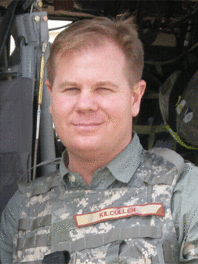
Kilcullen: Send either lots of troops or none at all
November 12th, 2009
Some quick notes from Georgetown, where David Kilcullen has just addressed students and faculty at the Center for Peace and Security Studies. Highlights below:
The oft-touted 1:50 (or 20:1,000) ratio is “flawed.” It was based on post-war reconstruction studies done by the Rand Corporation, not on actual insurgencies. Successful COIN campaigns have employed ratios that vary widely. It also refers to total security forces, not just — in our case — American troops. Finally, it’s better to think about the military presence functionally, rather than numerically.
“Where local officials sleep” is a good indicator to track progress. In the film, I Am Legend, Will Smith must get home before the vampires come out to feast. Similarly, in Afghanistan today some 70% of provincial governors sleep in Kabul instead of the provinces they govern. This is bad.
Successful counterinsurgencies take 15-20 years. Unsuccessful ones take 9-11 years.
There is “no universal silver bullet” for winning counterinsurgencies; “there are no templates.” Counterinsurgency itself can best be described as “a battle for adapation…against an enemy who is evolving.”
COIN should be viewed as “a subset of stability operations” because it is not a strategy.
Phi Beta Iota: Our opinion of this officer went up with these notes, a fine public service by a blogger present to hear Dr. Kincullen's remarks. While we continue to be negative about the “new new counterinsurgency” mantra, the gems above (and in the rest of the full write-up, NOT copied above) are righteous good thinking. See our general review category, Insurgency & Revolution (51) and Stabilization & Reconstruction (29). In relation to Dr. Kincullen, the new new mantra, and the FAILURE of Congress and the Executive to listen to The Honorable Charlie Wilson when he asked for the money to continue after the Soviets left, only shifting to infrastructure and schools, see:
Review: The Accidental Guerrilla: Fighting Small Wars in the Midst of a Big One
Review: The Fourth Star–Four Generals and the Epic Struggle for the Future of the United States Army
Review: Charlie Wilson’s War: The Extraordinary Story of the Largest Covert Operation in History
Worth a Look: The Golden Hour and Rebalancing the Instruments of National Power
Handbook: Guide to Rebuilding Public Sector Services in Stability Operations–A Role for the Military
The leadership of civilization building: Administrative and civilization theory, symbolic dialogue, and citizen skills for the 21st century



